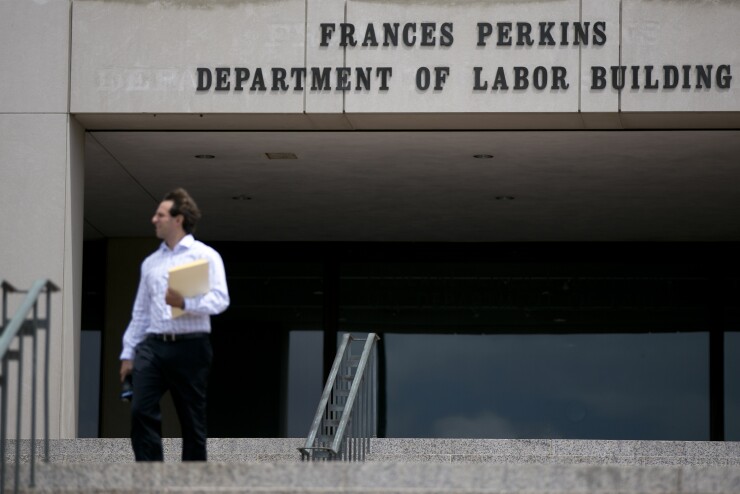Although the Labor Department’s newly proposed overtime rule may be good news for workers, it’s less so for small and medium-sized employers, who are likely to feel the biggest impact of the change. A potential increase in administrative burdens, not to mention wages, likely will result in legal challenges to the rule, experts say.
The
The new rule will have a “significant impact on many businesses,” says Ryan Mick, a partner at international law firm Dorsey & Whitney in its labor and employment practice. “Small and medium-sized businesses may bear the brunt of that impact.”

By contrast, for many larger employers the rule will be “a non-event,” he says, because many of them already made changes to their overtime requirements to comply with the Obama administration’s 2016 final rule before it was enjoined the following year.
The majority of business groups were critical of Obama’s overtime rule, citing the burdens it placed particularly on small businesses that would be forced to roll out new systems for tracking hours, recordkeeping and reporting.
Under the Obama administration, the Labor Department in 2016 doubled the salary threshold to roughly $47,000, extending mandatory overtime pay to nearly 4 million U.S. employees. But the following year, a federal judge in Texas ruled that the ceiling was set so high that it could sweep in some management workers who are supposed to be exempt from overtime pay protections. Business groups and 21 Republican-led states then sued, challenging the rule.
Challenges to the new rule will likely occur as well, based on similar complaints of administrative burdens, but a legal challenge might be more difficult to pass this time around.
“It would not surprise me at all to see legal challenges to the final rule, possibly from both employer advocates and employee advocates, which will likely be issues months from now,” notes Brett Coburn, a partner at the law firm Alston & Bird.
He adds that the new proposed rule goes to great lengths in its commentary to address issues that caused a district court judge in Texas to invalidate the Obama administration’s rule, “so efforts to challenge the new rule — assuming it, or something close to it, becomes the final rule — will likely be more difficult than back in 2016,” he says.
Paul DeCamp, a labor and workforce management lawyer at Epstein Becker Green, calls the DOL’s proposal “moderate” and “consistent with what Secretary Acosta has been signaling for almost two years.”
“Assuming that the final rule ends up mirroring the proposal, this rulemaking seems likely to withstand legal challenge, or even to avoid a challenge altogether,” DeCamp says. “Employers should begin their planning now for how they will adapt to the new rule, while remaining mindful of state and local considerations such as alternative compensation thresholds, notice requirements and the like.”
The good news for employers is the new rule is a much smaller increase than what the Obama administration proposed, experts say.
“Employers who recall the feeling of panic when the Obama administration issued its final rule doubling the salary basis threshold in May 2016 will breathe a sigh of relief [over the smaller proposed increase],” Mick says.
“Employers will also be relieved that the Department of Labor did not propose changes to the duties tests for exemptions under the FLSA, which would have required many employers to undertake a far more complex analysis to determine exempt status for many employees,” he says.





